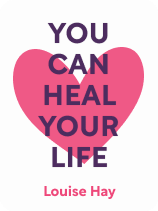

This article is an excerpt from the Shortform book guide to "You Can Heal Your Life" by Louise Hay. Shortform has the world's best summaries and analyses of books you should be reading.
Like this article? Sign up for a free trial here.
Do you tend to harbor grudges and ruminate on past hurts? How can practicing forgiveness help you rid yourself of suffering and truly move on with your life?
By practicing forgiveness, we can leave the negative experiences of our past behind and move forward with our lives. According to Louise Hay, the author of You Can Heal Your Life, we can even rely on forgiveness to heal from diseases.
Here’s why it’s important to practice forgiveness and letting go.
Forgive to Let the Past Go
Hay explains that we often blame other people for our problems, but blaming others actually makes our problems more entrenched. By placing the blame on others, we fail to take responsibility for ourselves and the problem goes unsolved. Because our thoughts create our reality, she says, we are the ones responsible for everything that happens to us. Rather than blaming someone for an error they made, it’s better to practice forgiveness and assume responsibility.
Hay says that one exercise you can do to practice forgiveness is to say out loud to yourself the name of the person you need to forgive, then state that you forgive them and identify the specific action or behavior for which you’re forgiving them. Another approach is to imagine the person you have the hardest time forgiving, then visualize good things happening to them.
Because negative childhood experiences can have such an outsized impact on our lives, Hay believes it’s particularly important to forgive your parents. She advocates forgiving your parents or caregivers for the ways in which they’ve wronged you—not to give them a “free pass” for their behavior, but to help you move forward with your own life. She suggests asking your parents what their childhoods were like to better understand why they acted the way they did. This will allow you to have more compassion for them, which in turn will allow you to have more compassion for yourself. They were hurt, and they hurt you—but you don’t have to keep hurting yourself, says Hay.
Hay says that once you’ve bestowed forgiveness on the person who you once blamed for your problems, you’ll be able to take control of the situation and begin to solve it.
Forgive to Heal From Disease
Hay claims that just as she cured her cancer by forgiving her parents for her abusive childhood, so too can anyone heal from illness if they forgive the people who’ve hurt them. Similarly, she contends that failing to forgive those who hurt you can make you sick, as she says happened to her. In fact, Hay asserts that failing to forgive is the cause of all disease. Bottling up your resentment and anger can eat away at your body and manifest in all types of illnesses. Only by letting that blame go can you heal from disease.
| Forgiveness and Letting Go of Anger as a Pathway to Better Health While there’s no scientific evidence to suggest that forgiveness can cure cancer or any other disease, some modern research has borne out Hay’s underlying theory that there is a link between forgiveness and improved health. Studies show that letting go of anger and resentment can lead to better mental and physical health. Forgiveness can lower the risk of heart attack and reduce depression and anxiety. Research conducted by the Stanford Forgiveness Project demonstrates that, after being taught a specific method for forgiveness, 27% of subjects experienced fewer physical ailments, such as pain, gastrointestinal problems, and dizziness. In addition, 70% reported a decrease in hurt feelings, and 13% experienced reduced anger. Why is forgiveness good for your health? Experts say that chronic anger causes your brain to go into fight-or-flight mode, which increases your stress levels and weakens your immune system, resulting in greater risk of illness. Forgiveness allows you to lower your stress levels and improve your health. Forgiveness doesn’t have to mean reconciling with the person who hurt you or condoning their actions. Experts agree with Hay’s characterization of forgiveness as something you do for yourself, not for the person who hurt you. |

———End of Preview———
Like what you just read? Read the rest of the world's best book summary and analysis of Louise Hay's "You Can Heal Your Life" at Shortform.
Here's what you'll find in our full You Can Heal Your Life summary:
- The causes and effects of negative beliefs
- How to transform your negative thoughts into positive ones
- How to solve your problems with relationships, money, work, and even illness






